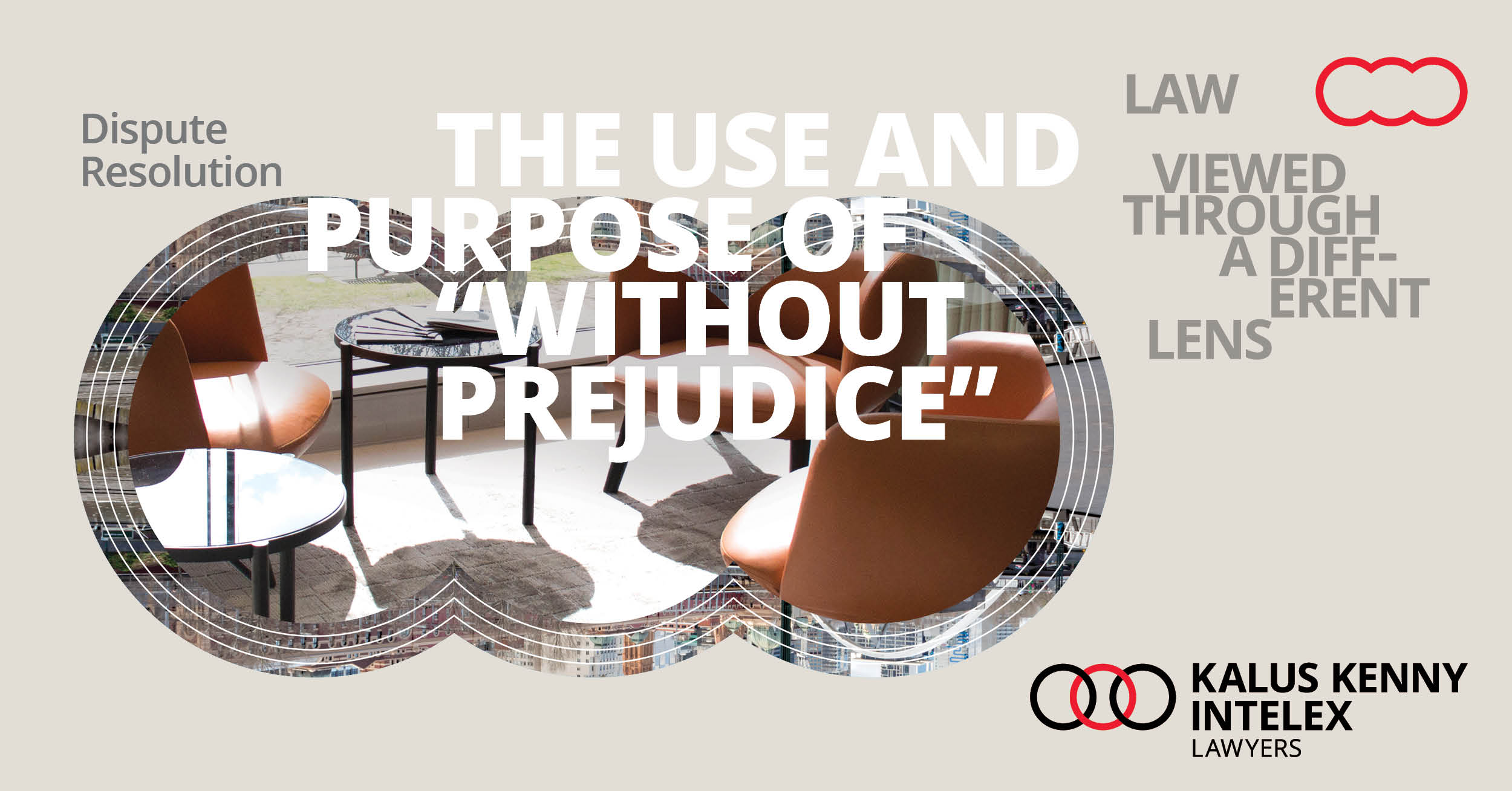What is ‘without prejudice’?
The term ‘without prejudice’ is frequently misused, often causing confusion when matters come before a court.
Broadly speaking, ‘without prejudice’ communications are inadmissible (meaning they cannot be provided to a court) so long as they contain a genuine attempt to settle a dispute outside of court. This protection encourages parties to make concessions and compromises without the fear of statements being used against them.
Exceptions
‘Without prejudice’ protections will not apply where:
- the term is employed to hide some form of impropriety or illegal activity (for example, blackmail);
- the communication expressly states that the contents should not be treated as confidential;
- the communication does not contain an offer or a genuine attempt to settle a dispute; or
- the communication contains material already disclosed in open correspondence with the parties’ consent.
Further, ‘without prejudice’ protections do not apply to general commercial negotiations. The protection only applies where a dispute has arisen between parties and either party is making a genuine attempt to settle the dispute.
What is ‘without prejudice save as to costs’?
When a communication is ‘without prejudice save as to costs’, the same protections apply until the question of costs arises in court. At this point, the court is entitled to examine the contents of a ‘without prejudice save as to costs’ communication for the limited purpose of formulating a costs order.
In most circumstances, a ‘without prejudice save as to costs’ communication is intended to encourage another party to settle a dispute. If a party rejects a favourable offer that was made, the court may consider these communications when awarding costs after the determination of a proceeding.
Using ‘without prejudice’ or ‘without prejudice save as to costs’
To ensure your dispute negotiations are protected as ‘without prejudice’ or ‘without prejudice save as to costs’, you should:
- state the term clearly on written correspondence (both letters and emails); or
- state the terms clearly at the start of any oral communication.
Misuse of the term ‘without prejudice’ will render the communication unprotected if the dispute goes to court.
For all questions regarding dispute resolution, please do not hesitate to contact our litigation and dispute resolution team.




